- Quick online pre-approval and application processes.
- High customer satisfaction ratings.
Our evaluations and opinions are not influenced by our advertising relationships, but we may earn a commission from our partners’ links. This content is created independently from TIME’s editorial staff. Learn more about it.
A cash-out refinance might be a great option if you have equity in your home and need a lump sum of cash. This type of loan replaces your existing mortgage with a new one at a higher amount than you currently owe. The difference between what you owe and the larger refinance amount will be paid out in cash. You can then use that money to pay for anything from a home renovation to educational expenses for a family member.
Read on to see our top picks for cash-out refinance mortgages.
Our top picks for the best cash-out refinance mortgages
| Cash-out refinance lender | Best For | Minimum credit score | APR (30-year loan) | Loan terms |
|---|---|---|---|---|
Digital refinancing | 580 | 7.18% | 20 years, 30 years | |
NBKC Bank | FHA loan refinancing | Not specified | Not specified | Not specified |
PenFed Credit Union | Low APR | Not specified | 6.389% | 10 years to 30 years |
Navy Federal Credit Union | VA loan refinancing | Not specified | 6.558% | 10 years to 30 years |
SoFi | Loan term options | 620 is preferable | Not specified | 10 years, 15 years, 20 years, 30 years |
Warp Speed Mortgage | Fast closing | 620 | 7.255% | 30 years |
Our recommendations
Best for digital refinancing: Rocket Mortgage
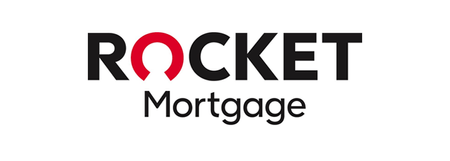
Rocket Mortgage
Rocket Mortgage
Rocket Mortgage is known for its streamlined online mortgage process. The same process applies to refinancing customers—you can apply online and get loan options in seven minutes or less, and then customize your loan and complete your application via online chat or phone.
Once you’ve applied, you can log into Rocket Mortgage to check your loan status, upload documents, and more. Although Rocket Mortgage is a solid choice for digital refinancing, the company doesn’t have any physical branches, so customers won’t be able to work with a loan officer face-to-face.
Pros:
Cons:
- No physical branches.
Best for FHA loan refinancing: NBKC Bank
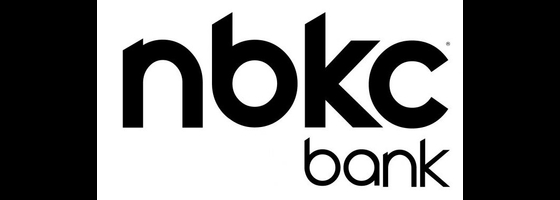
NBKC Bank Cash Out Mortgage
NBKC Bank Cash Out Mortgage
Unlike many lenders, NBKC offers FHA loan refinancing and loans for self-employed borrowers. Two FHA options are available through NBKC Bank: FHA Refinance and FHA Streamline Refinance. The former lets you tap into your home’s equity to finance purchases or reduce debt.
NBKC Bank also has a high Trustpilot customer satisfaction rating, averaging 4.6 out of 5 over 299 customer reviews as of February 2024. Knowing that existing customers recommend NBKC helps make up for the fact that the website doesn’t list mortgage rates or provide information about loan terms unless you enter your personal information.
Pros:
- Offers FHA loan refinancing, plus other difficult-to-find mortgage products.
- Customer service is available over the phone or through online chat.
- High customer satisfaction ratings.
Cons:
- Personal information is required for a rate quote.
- The website doesn’t provide information about loan terms.
Best for low APR: PenFed Credit Union

PenFed Credit Union Cash out Refinance Mortgage
PenFed Credit Union Cash out Refinance Mortgage
PenFed Credit Union has a relatively low APR for mortgage refinancing of 6.389%. Borrowers who qualify for this rate will pay less interest and fees over the life of their loan. It’s important to note that rates can change, but generally, you can expect a lower APR for your cash-out refinance through PenFed Credit Union.
To be able to refinance through PenFed, you must be a credit union member. However, there are no limitations to membership so anyone can sign up, and membership comes with several perks, such as member discounts, a financial hardship center, and an advice center.
Pros:
- Relatively low cash-out refinance rates.
- No eligibility requirements for membership.
Cons:
- Must be a credit union member to qualify.
Best for VA loan refinancing: Navy Federal Credit Union
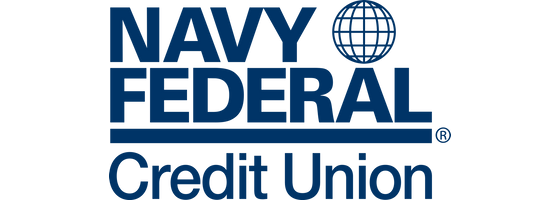
Navy Federal Credit Union Cash Out Refinance Mortgage
Navy Federal Credit Union Cash Out Refinance Mortgage
Service members and veterans who want to refinance their mortgage and borrow from their home’s equity will want to consider Navy Federal Credit Union. Eligible borrowers can refinance their VA loan for up to 100% of their home’s value, which is ideal for those who don’t have a lot of equity in their home or need a larger sum of cash than a conventional refinance will offer.
You'll need to become a member to get a cash-out refinance mortgage from Navy Federal, which adds an extra step to the process if you’re not an existing member. Membership comes with numerous perks, but it’s only available to customers with ties to the armed forces, Department of Defense, or National Guard.
Those who are eligible can access a service called HomeSquad, which will let them check the status of their loan, upload required documentation, and connect bank accounts to verify assets. This can help streamline the process for the borrower.
Pros:
- High LTV ratio for cash-out refinancers.
- Ability to track loan status online through HomeSquad.
Cons:
- Must be a credit union member to qualify.
- Credit score requirements are not listed on the website.
Best for loan term options: SoFi
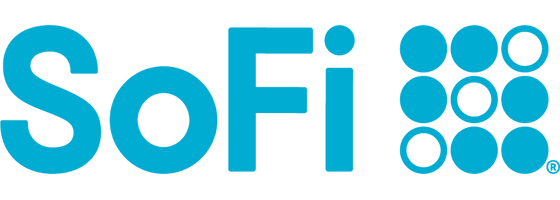
SoFi Cash Out Refinance Mortgage
SoFi Cash Out Refinance Mortgage
SoFi offers four different loan terms for cash-out refinances: 10 years, 15 years, 20 years, and 30 years. This wide range means a Sofi refinance can be a realistic option for many borrowers. SoFi also offers a $500 discount on its home loan processing fee for borrowers who meet certain criteria (such as an existing SoFi personal loan or student loan or at least $50,000 in a SoFi investment account). SoFi also offers several resources to guide borrowers through the refinancing process.
SoFi only offers conventional and jumbo loan refinancing, so those looking for VA or FHA refinancing must go elsewhere.
Pros:
- Loan term options of 10, 15, 20, or 30 years.
- $500 savings on processing fees.
- Access to events, expert advice, and a supportive community.
Cons:
- Refinancing options are limited to conventional and jumbo loans.
Best for fast closing: Warp Speed Mortgage
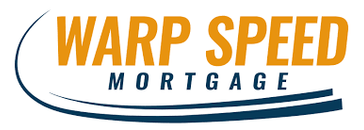
Warp Speed Cash Out Refinance Mortgage
Warp Speed Cash Out Refinance Mortgage
For urgent refinance requests, Warp Speed Mortgage is an excellent option. The lender has a 14-business-day closing guarantee and will issue a $2,000 closing credit if the loan takes longer than 14 business days to close. This can help give you added peace of mind that your cash-out refinance will be completed quickly. However, there are several scenarios where the guarantee would not apply—the most notable being delays due to third parties, which would include appraisals, title requests, and more.
Additionally, Warp Speed Mortgage offers a fully digital experience. Its online application allows you to upload documents, communicate with your Client Manager, and even close online through the eClosing process.
Pros:
- Closing guarantee of 14 business days.
- Fully digital refinance application process.
- Annual “health checks.”
Cons:
- The guarantee isn’t valid if there are third-party delays.
Find more cash out refinance mortgage lenders
Methodology
When researching the best cash-out refinance mortgage options, we reviewed several lenders and compared their interest rates, APRs, loan terms, and credit score requirements. We then dove deeper into each lender to see what made them stand out among the competition. This left us with notable lenders offering cash-out refinance loans that will appeal to a broad range of borrowers.
How to pick the best cash-out refinance mortgage
Like any loan, it’s important to do your research when looking for a cash-out refinance mortgage. First, look into several options to compare interest rates, repayment terms, fees, and closing costs. You can also read online reviews of each lender and ask for recommendations from friends and family members.
In addition to researching and comparing lenders, consider your needs. Are you looking for a certain type of loan, such as a VA or FHA refinance loan? Are you a landlord who wants a cash-out refinance loan for a rental property? Whatever it is, you’ll need to ensure the lenders you’re considering can accommodate you.
Once you’ve chosen your loan, read the fine print before you sign any loan agreements. Pay attention to the closing costs to ensure you’re not surprised when you close the loan.
Finally, consult a mortgage professional to see if other options are better. Even if you think you’ve found the ideal refinance loan, a mortgage professional may be able to find an option with a lower interest rate or cheaper closing costs.
Alternatives to cash-out refinancing
Cash-out refinancing can be a great way to tap into your home equity, but it’s not the only way. Alternatives include home equity loans and home equity lines of credit (HELOCs).
Home equity loan
A home equity loan, also called a second mortgage, is a type of loan that borrows from the equity you have in your home. The home equity loan doesn’t replace your existing mortgage like a cash-out refinance; instead, it’s an additional loan you must repay in addition to your primary mortgage.
When you get a home equity loan, you’ll receive a lump sum of cash from your home’s equity and pay it back in monthly installments at a fixed rate. The rates for a home equity loan are often higher than for a cash-out refinance, but if you only need to borrow a small amount from your equity, it may save you money in the long run.
Home equity line of credit (HELOC)
A HELOC also uses the equity in your home, but it is a revolving line of credit that functions more like a credit card than an installment loan. When approved for a HELOC, the lender will allow you to withdraw funds up to a certain limit and repay the money similarly to a credit card.
The HELOC has two distinct periods: a draw period and a repayment period. The exact draw and repayment periods will vary by lender, but it’s common for a HELOC to have a 10-year draw period and a 20-year repayment period. During the draw period, you’ll only pay interest on your balance. Once the draw period ends and the repayment period begins, you won’t be able to withdraw any more money from the HELOC and begin repaying the balance.
HELOCs have variable rates, which means you may pay more or less interest than you would with a fixed-rate cash-out refinance loan.
More about cash-out refinancing
What is a cash-out refinance? How does a cash-out refinance work?
A cash-out refinance is a loan that replaces your existing mortgage with a new one at a higher amount. Any amount above what you owe on your current mortgage will be paid out in a lump sum. You can then use that cash to fund your expenses, such as home renovation, educational expenses, debt consolidation, or medical bills.
For example, if your home is currently worth $400,000, and you owe $200,000 on your existing mortgage, you can get a refinance loan for $250,000 and a $50,000 cash payout. You will one monthly payment, and you can use the cash for any purpose.
How much cash can you get from a cash-out refinance?
The amount of cash you can get from a cash-out refinance depends on how much equity you have in your home. In general, lenders will require that you keep at least 20% of equity in your home, though it’s possible to find lenders that will allow you to keep as little as 10% equity.
In the case of the $400,000 home with a $200,000 loan, you could get a cash-out refinance of up to $320,000 and still retain 20% equity in your home. That means you could get a cash payout of up to $120,000, though it’s not recommended to take out more cash from your equity than you need.
Pros and cons of a cash-out refinance
All loans have their pros and cons, and cash-out refinances are no exception. The following table breaks down the pros and cons of cash-out refinance loans.
Pros:
- Potential to reduce the interest rate on your mortgage
- Replaces existing mortgage rather than adding a second loan
- Allows you to access more money than a personal loan or credit card
Cons:
- If you default on the loan, you could lose your home
- The loan term will reset, so you may go from having 15 years left on a 30-year loan to having a new 30-year loan
- Approval for a cash-out refinance can take time and be complicated
- Cash-out refinances come with closing costs of 2% to 6% of the principal
Steps to getting a cash-out refinance
Follow these steps once you’re ready to move forward with a cash-out refinance:
- Check the lender’s requirements to make sure you qualify.
- Calculate how much cash you need to pay for the expense you’re funding.
- Fill out an application with your chosen lender and provide any necessary income documents.
- Wait for approval and receive your cash payment.
- Start repaying the loan each month.
Cash-out refinance requirements
The exact requirements for a cash-out refinance will depend on the lender. However, there are certain requirements that most lenders have, such as the following:
- Credit score requirements: You may need a credit score of at least 580 to qualify for a cash-out refinance. Conventional lenders may require you to have a credit score of 620 or higher.
- Debt-to-income (DTI) ratio requirements: Many lenders require borrowers to have a DTI ratio of 50% or lower. A DTI ratio is calculated by dividing your monthly debts by your total monthly income.
- Equity requirements: If you don’t have equity in your home, you won’t qualify for a cash-out refinance. Lenders often require 20% equity or more in your home to approve a cash-out refinance loan.
When is a cash-out refinance a good idea?
A cash-out refinance may be a good choice if you need a large sum of cash to finance a specific expense, such as a home improvement project, debt consolidation, or paying for a child’s college education. Cash-out refinances tend to have lower interest rates than other options, such as credit cards or personal loans, which can save you money in the long run.
TIME Stamp: A cash-out refinance can benefit you financially
If you have equity in your home and need a lump sum of cash, a cash-out refinance can provide you with the money you need rather than maxing out your credit cards or getting a personal loan. The best cash-out refinance mortgages will suit the needs of many borrowers, though it’s important to shop around with several lenders to find the one that best suits your needs.
Frequently asked questions (FAQs)
Can you get a 90% cash-out refinance?
Some lenders offer cash-out refinances up to 90%. If you need to borrow this much equity from your home, it’s important to shop around for a lender that offers loans with such a high loan-to-value (LTV) ratio.
How can I qualify for a refinance?
The qualification requirements for a refinance vary from lender to lender. However, most lenders will require the following:
- A minimum credit score of 620 (or, in some cases, 580).
- A debt-to-income (DTI) ratio of 50% or less.
- A loan-to-value (LTV) ratio of 80% or less (some lenders may approve refinances with a 90% LTV ratio).
Can I refinance my mortgage with bad credit?
The credit requirements for a mortgage refinance depend on the lender and the type of loan. Conventional lenders generally require borrowers to have a credit score of 620 or higher, while VA and FHA lenders may approve borrowers with as low as 580.
How long does a mortgage refinance take?
A mortgage refinance often takes between 30 and 45 days to complete; however, the exact amount of time will depend on several factors. When you refinance your mortgage, you’ll need to have certain third-party services performed, such as an appraisal and a home inspection. If you can schedule these quickly, you’ll likely have a shorter time to close.
Should I get a fixed- or adjustable-rate mortgage?
There are pros and cons to both fixed- and adjustable-rate mortgages. Opting for a fixed-rate mortgage means your monthly payment will remain the same for the life of the loan, while an adjustable-rate mortgage payment may periodically increase or decrease.
A steady payment amount makes it easier to budget, but you won’t benefit if interest rates drop, as you would with an adjustable-rate mortgage. If you’re unsure which option is best, consult a mortgage professional.
The information presented here is created independently from the TIME editorial staff. To learn more, see our About page.

